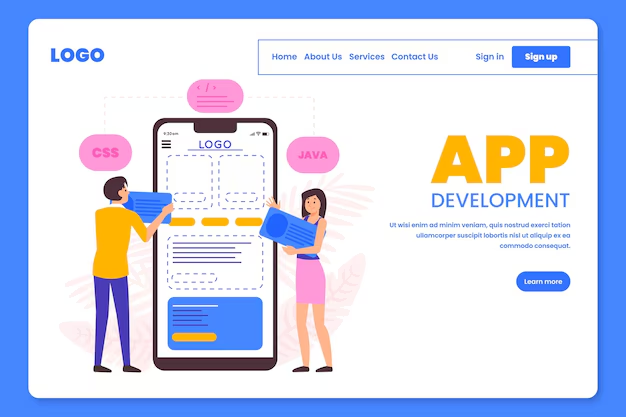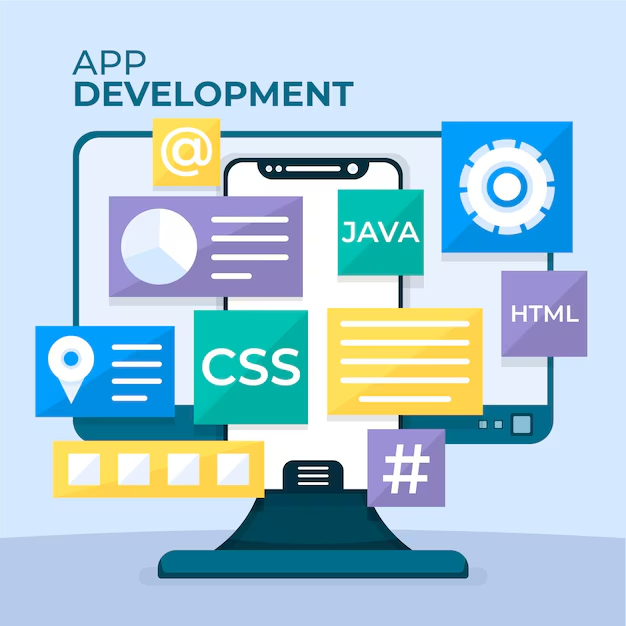Strategic Social Media Marketing Solutions for Your Business
we specialize in delivering targeted and effective social media marketing strategies that drive engagement, increase brand awareness, and boost conversions. Our tailored approach ensures your business achieves its social media goals with measurable results.


- Cross-Platform Compatibility
- Offline Functionality
- Native App Experience
- Cost-Effective Development
- Faster Time-to-Market
- Unified Codebase
- Access to Device Features
- Seamless Updates
- Enhanced Performance
- Scalability
Social Media Strategy Development
Researching and identifying your target audience to tailor content and campaigns.
Content Creation and Management
Developing high-quality, engaging content including posts, videos, and graphics.
Paid Social Advertising
Creating and managing paid advertising campaigns on social platforms.
Performance Analytics and Reporting
Monitoring key metrics such as reach, engagement, conversions, and ROI.
FAQ
Definition: A hybrid app combines elements of both native and web applications. It is essentially a web app inside a native app shell.
Differences: Unlike native apps, which are built specifically for one platform, hybrid apps are cross-platform and can run on multiple operating systems. Hybrid apps offer the flexibility of web apps while providing access to native device features.
Differences: Unlike native apps, which are built specifically for one platform, hybrid apps are cross-platform and can run on multiple operating systems. Hybrid apps offer the flexibility of web apps while providing access to native device features.
Cross-Platform Compatibility: Hybrid apps work on both iOS and Android, reducing development time and costs.
Faster Development: Reusable codebase allows for quicker development and deployment compared to building separate native apps.
Cost-Effective: Lower development and maintenance costs as you only need to develop and maintain a single codebase.
Offline Capabilities: Many hybrid apps can function offline, improving accessibility for users.
Faster Development: Reusable codebase allows for quicker development and deployment compared to building separate native apps.
Cost-Effective: Lower development and maintenance costs as you only need to develop and maintain a single codebase.
Offline Capabilities: Many hybrid apps can function offline, improving accessibility for users.
Performance Considerations: While native apps typically offer superior performance, hybrid apps have significantly improved and can deliver near-native performance for most use cases.
Use Cases: Hybrid apps are well-suited for content-driven apps, enterprise applications, and apps that do not require intensive graphical performance.
Use Cases: Hybrid apps are well-suited for content-driven apps, enterprise applications, and apps that do not require intensive graphical performance.
Common Frameworks: Popular frameworks for hybrid app development include React Native, Flutter, Ionic, and Apache Cordova.
Web Technologies: Hybrid apps are built using standard web technologies such as HTML, CSS, and JavaScript, and then wrapped in a native container.
Web Technologies: Hybrid apps are built using standard web technologies such as HTML, CSS, and JavaScript, and then wrapped in a native container.
Native Features: Yes, hybrid apps can access native device features using plugins and APIs provided by frameworks like Cordova and Capacitor.
Capabilities: Hybrid apps can leverage device capabilities such as camera, GPS, push notifications, and more, similar to native apps.
Capabilities: Hybrid apps can leverage device capabilities such as camera, GPS, push notifications, and more, similar to native apps.
Single Codebase Maintenance: Maintaining a hybrid app is generally simpler due to the single codebase, which reduces the effort and cost involved.
Regular Updates: Regularly update the app to incorporate new features, security patches, and performance improvements.
Platform-Specific Adjustments: Ensure that updates are tested across all targeted platforms to address any platform-specific issues.
Framework Updates: Keep the development framework up-to-date to take advantage of the latest features and improvements.
Regular Updates: Regularly update the app to incorporate new features, security patches, and performance improvements.
Platform-Specific Adjustments: Ensure that updates are tested across all targeted platforms to address any platform-specific issues.
Framework Updates: Keep the development framework up-to-date to take advantage of the latest features and improvements.



